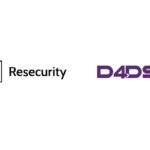Ransomware remains one of the main threats to information security globally and in the META region. In 2022, the average cost of a ransomware attack was US$4.54 million (according to IBM’s data breach report), and Kaspersky solutions detected over 74.2M attempted ransomware attacks (20% increase to 2021). While the beginning of 2023 saw a decline in the number of ransomware attacks, in Q2 some regions saw an upward trend compared to the same period in 2022.
According to Kaspersky Security Network data, in Q2 2023 the number of ransomware attack attempts in the UAE decreased by 9.5% from Q1 to Q2 2023. These attempts were blocked by Kaspersky solutions.
Ransomware numbers may be increasing in some regions and decreasing in others. Regardless of the dynamics, ransomware is becoming more sophisticated and targeted. Ransomware attackers target all types of organizations, from healthcare and educational institutions to service providers and industrial enterprises.
At the beginning of 2023 LockBit, one of the world’s most prolific ransomware groups, remained in the first place among the top five most influential and prolific ransomware groups. REvil and Conti were replaced by Vice Society and BlackCat. The remaining ransomware groups that formed the top five at the beginning of 2023 were Clop and Royal.
“Ransomware groups around the world continue to improve their techniques. They are driven by three main factors. First, it is the chances of getting caught when attacking a certain organization. The second factor is the size of ransom they can potentially receive. Finally, they always estimate the technical difficulty of the attack. If any one of these parameters goes out of line with the plans of the attackers, they reconsider,” comments Dmitry Galov, Head of Kaspersky Global Research and Analysis Team (GReAT), Russia. “Installing effective security solutions will likely draw ransomware groups away from an organization. It is a necessary investment, as ransomware attacks can result in disastrous consequences such as permanent loss of information, disruption of business processes, loss of time, harm to reputation, and huge financial losses.”
Kaspersky Endpoint Security for Business, Kaspersky Small Office Security and Kaspersky Internet Security have demonstrated 100 percent effectiveness against ransomware attacks in Advanced Threat Protection Test assessments by AV-TEST. In 10 different full-chain attacks, the products did not lose a single user file.
To combat ransomware and assist those affected, the National High Tech Crime Unit of the Dutch National Police, Europol’s European Cybercrime Centre, Kaspersky, and other partners jointly launched the No More Ransom initiative in 2016. On the official website, participants provide decryption tools, guidelines, and instructions to report cybercrimes, irrespective of the location of the incident. These invaluable resources have helped victims of 173 ransomware families retrieve their data without making any payments.
Additionally, the initiative aims to raise awareness about ransomware and preventive measures to avoid infections. As a founding member of No More Ransom, Kaspersky has been a key contributor since the initiative’s inception.
To protect yourself and your business from ransomware attacks, consider following the rules proposed by Kaspersky:
- Do not expose remote desktop/management services (such as RDP, MSSQL, etc.) to public networks unless absolutely necessary and always use strong passwords, two-factor authentication and firewall rules for them.
- Promptly install available patches for commercial VPN solutions providing access for remote employees and acting as gateways in your network.
- Always keep software updated on all the devices you use to prevent ransomware from exploiting vulnerabilities.
- Focus your defense strategy on detecting lateral movements and data exfiltration to the Internet. Pay special attention to the outgoing traffic to detect cybercriminals’ connections.
- Back up data regularly with special attention to offline backup strategies. Make sure you can quickly access it in an emergency when needed.
- Avoid downloading and installing pirated software or software from unknown sources.
- Assess and audit your supply chain and managed services’ access to your environment.
- Prepare an action plan for reputational risk of your data exposure in the unfortunate event of data theft.
- Use solutions like Kaspersky Endpoint Detection and Response Expert and Kaspersky Managed Detection and Response service which help to identify and stop the attack on early stages, before attackers reach their final goals.
- To protect the corporate environment, educate your employees. Dedicated training courses can help, such as the ones provided in the Kaspersky Automated Security Awareness Platform.
- Use a reliable endpoint security solution, such as Kaspersky Endpoint Security for Business that is powered by exploit prevention, behavior detection and a remediation engine that is able to roll back malicious actions. KESB also has self-defense mechanisms which can prevent its removal by cybercriminals.
- Use the latest Threat Intelligence information to stay aware of actual TTPs used by threat actors. The Kaspersky Threat Intelligence Portal is a single point of access for Kaspersky’s TI, providing cyberattack data and insights gathered by our team for over 25 years.










